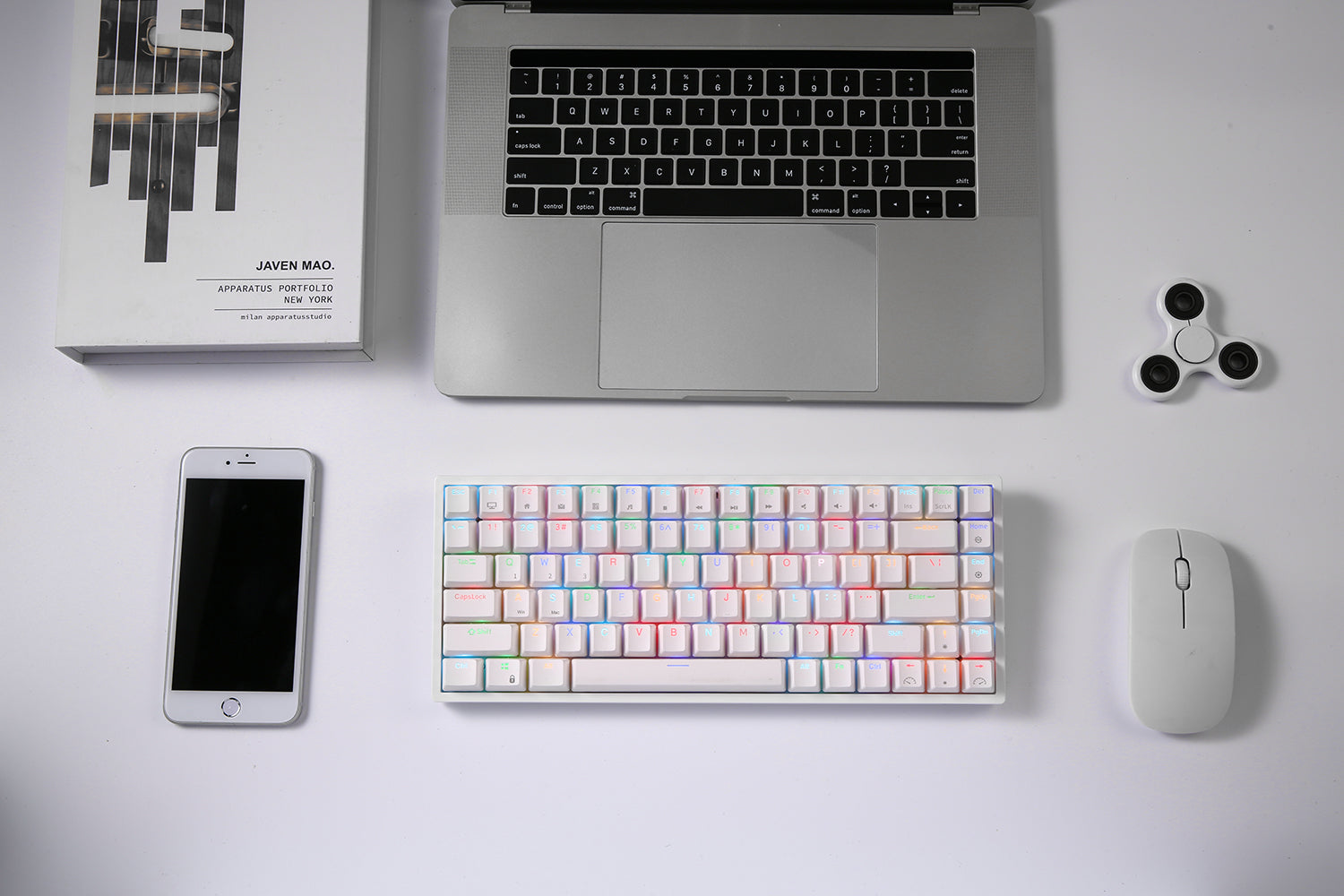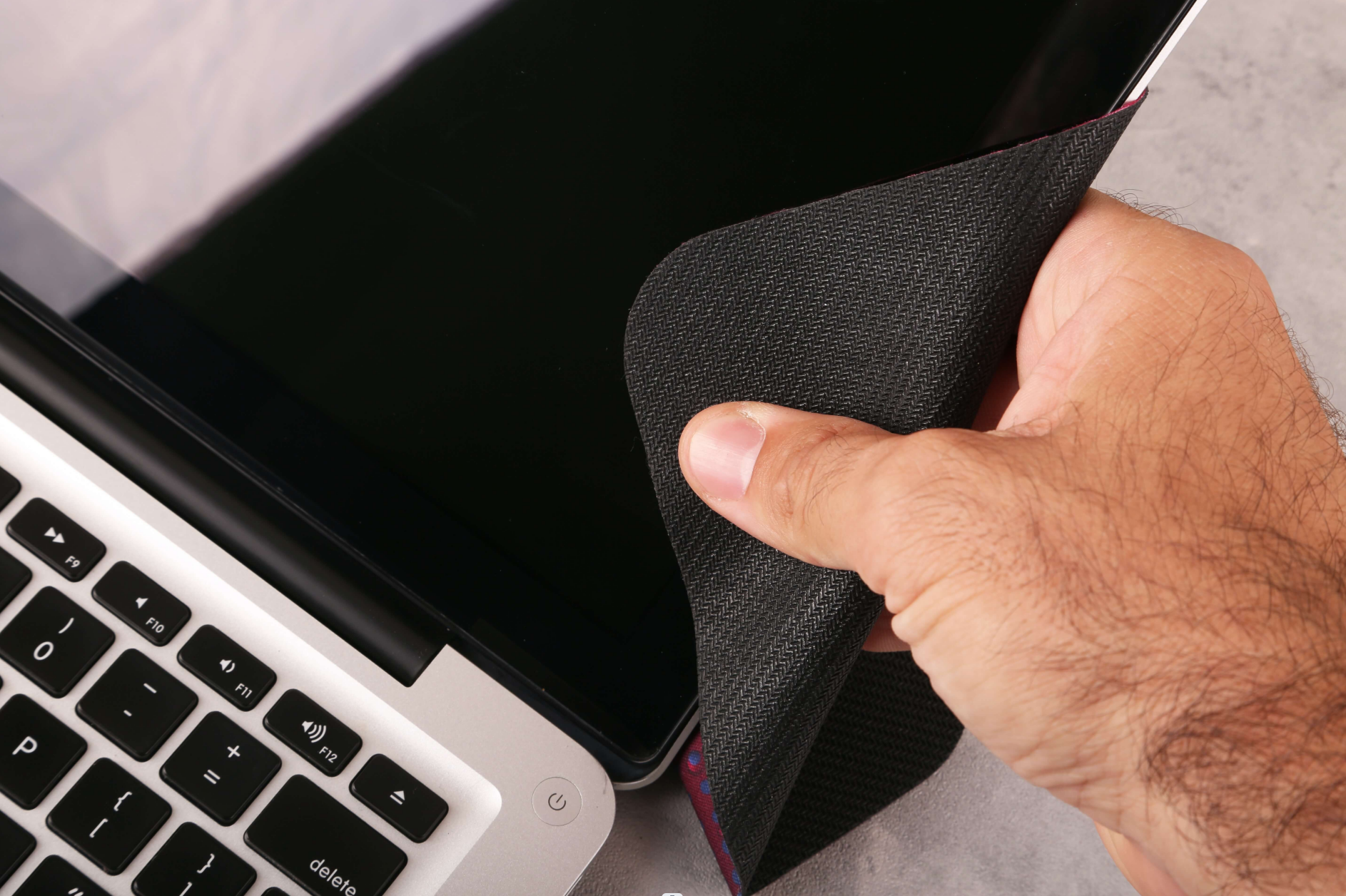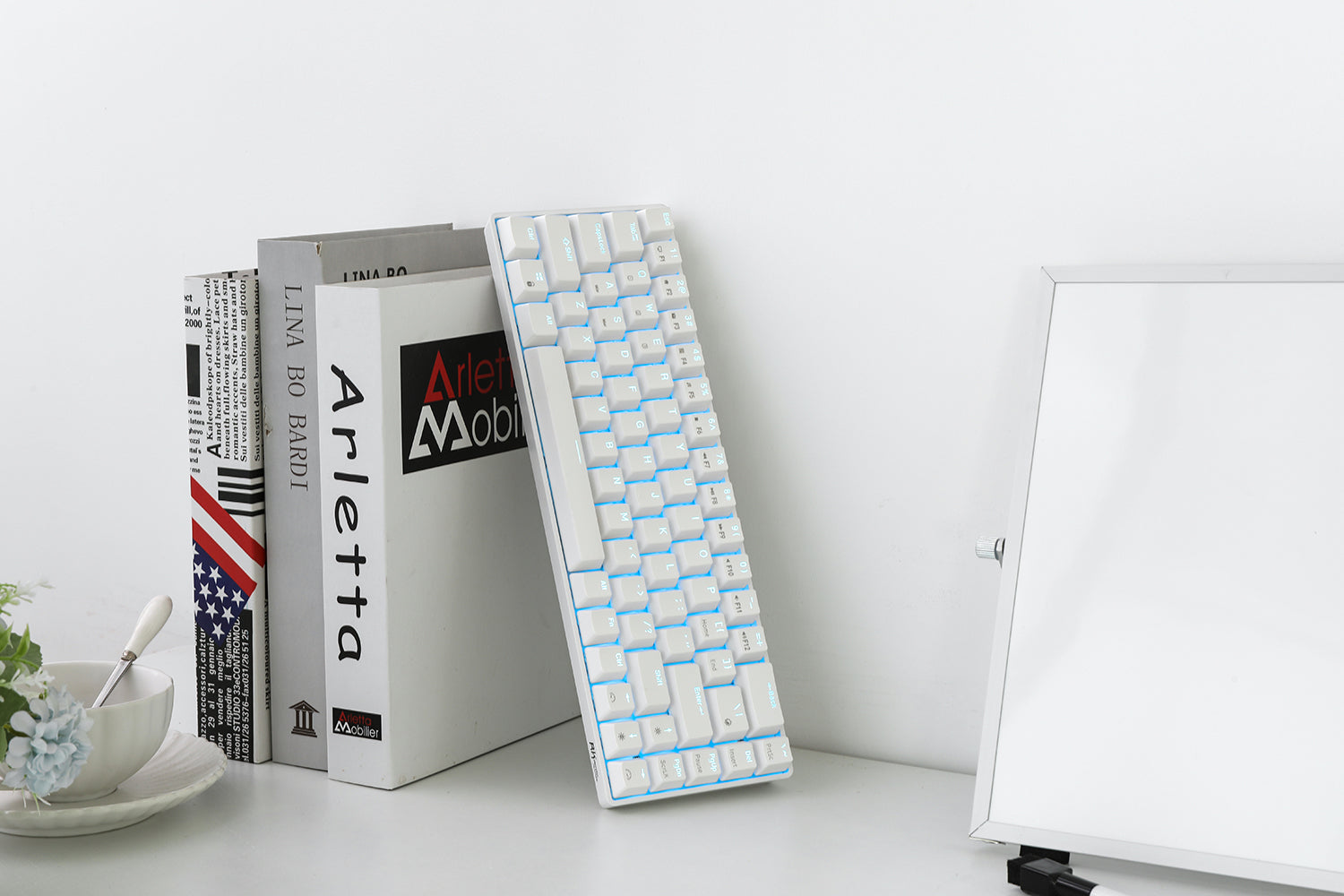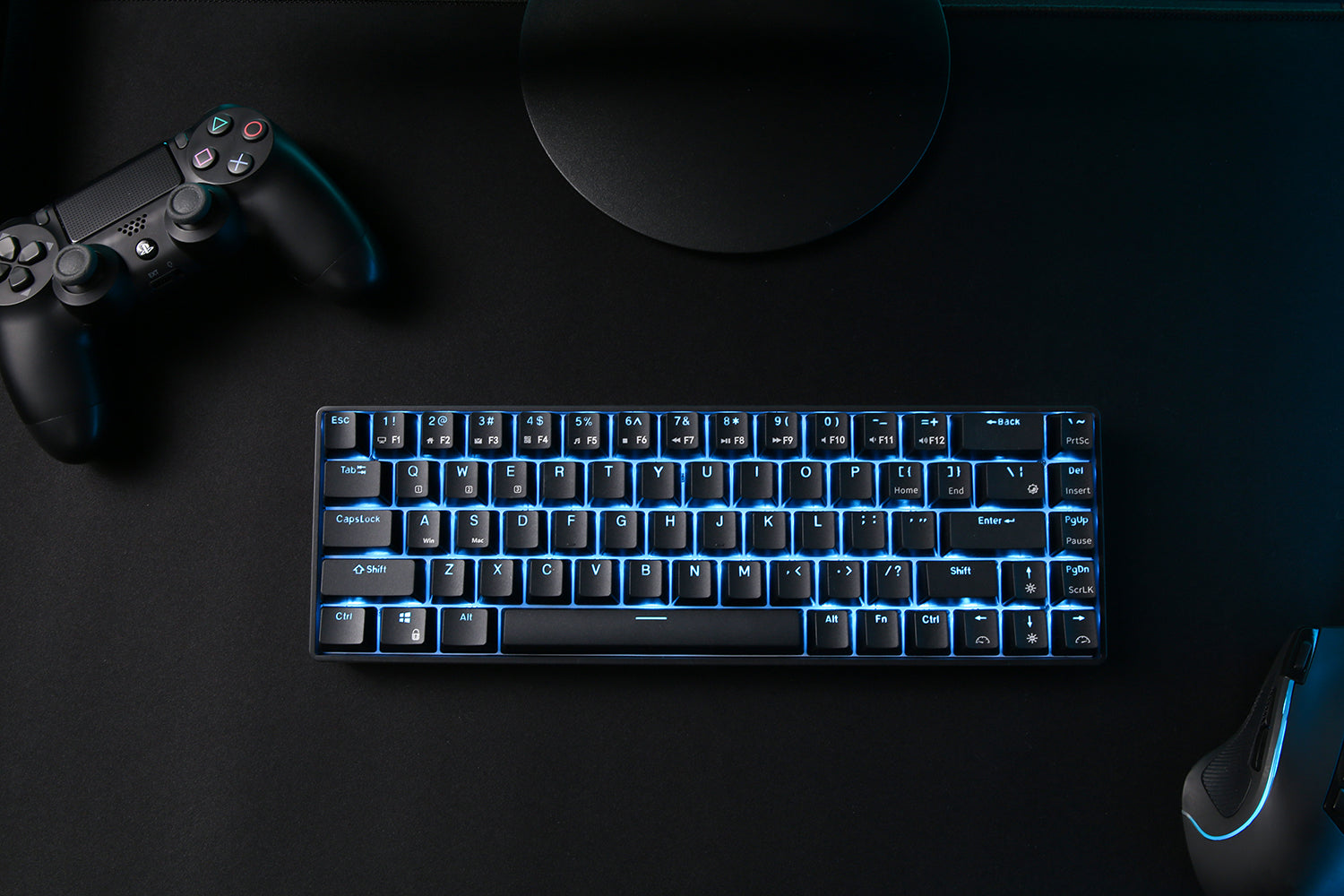How to Clean Your Computer Keyboard?
Introduction
If you're reading this, you're probably at your computer, possibly aware of the keyboard's importance in your daily life. Whether you're an office worker, a professional eSports gamer, or a casual user, keyboards are essential tools in our society. But have you ever considered the significance of keeping them clean? In this guide, we'll explore how to clean your keyboard. Let's get started!

Table of Contents:
- Introduction
- What Cleaning Supplies Should Be Used?
- How To Clean Your Detachable Keyboard?
- How To Clean A Laptop Keyboard?
- How Long Should A Keyboard Last You?
- Can Dust Damage Mechanical Keyboards?
- How Often Should I Clean My Keyboard?
- What Should Not Be Done to Clean a Keyboard?
- Do Mechanical Keyboards Need Maintenance?
- Dealing with Mechanical Key Wear
- Lubricating Stabilizers
- Conclusion
- FAQS
What Cleaning Supplies Should Be Used?

There are many tools for cleaning between your keys. Popular options include brushes, compressed air canisters, dust vacuums, or even a dust-absorbing slime. You can use specialized equipment or everyday household items, and yes even a toothbrush could work.
One commonly used item is compressed air, which can be used to blow out any dust or debris that may have accumulated in between the keys. Additionally, microfiber cloths are great for wiping down the surface of the keyboard and removing any smudges or fingerprints.
How To Clean Your Detachable Keyboard?
Detachable keyboards, the most common type, are usually easy to clean, especially with the right methods. Follow these steps:
Step 1: Disconnect
Start by unplugging your computer or removing the keyboard's batteries if it's wireless.
Step 2: Large Debris Removal
Carefully turn the keyboard upside down to remove any larger debris that may have conjoined between your keys. Do this in an area where you won't worry about dirt, or at least have a mop and broom at hand.
Note:
If you experience a liquid spill: If you've ever spilled something on your keyboard, you know how frustrating it can be. But don't worry, cleaning a keyboard is easier than you might think.
Step 3: Deeper Cleaning (Optional)
For a more thorough cleaning, if your keyboard allows, remove detachable keys and keycaps. Clean them individually with the tools referenced previously. You can even wash the keycaps with water, but ensure they are completely dry before putting it back together. There's nothing worse than building or rebuilding something and it won’t work, at least from my experience.
Step 4: Polish the Keys
Finish by taking a cloth, preferably a microfiber one, dampen it but not too much, and use it to polish the keys for a clean finish. This might give you the feeling of unboxing a new keyboard again.
By following this list, you'll have a clean keyboard that not only looks better but also performs at its best. Now, reconnect your keyboard and enjoy your day.
How To Clean A Laptop Keyboard?
Many people around the world use a laptop as their main access to their jobs and communications because phones can’t always cut it. One major aspect to keep in mind while cleaning a laptop is to not use any liquids that could potentially harm the laptop. These may seem impossible to clean but, are they? Let's take a look:
Step 1: Shutdown
So when cleaning a laptop keyboard you want to start off with making sure all files are secure and shut it down completely and not sleep. Also make sure to have nothing plugged in such as its charger or a wireless mouse.
Step 2: Surface Debris Removal
You may be thinking this sounds familiar or you’re having deja vu, well, you’re correct. Both second steps are relatively the same but there are a few crucial differences. Unlike the detachable keyboards a laptop is more expensive, more delicate, and heavier. With these factors in mind we want to be more careful. Dropping your laptop is like dropping your monitor, if it happens it's almost assured problems to ensue. Slowly and carefully shake the laptop after turning it upside down.
Step 3: Laptop Key Clean
In this step there are multiple ways to clean your laptop keyboard. If you decide to use a compressed air cleaner you will want to keep the laptop upside down or at a tilt and use bursts to remove the remaining debris. Be careful still because if you spray too hard under the keys you may damage the electronics.
Step 4: The Remaining
If any of it remains you can use a couple of items to dislodge them. This can range from a household commodity such as a toothpick, specialty designed keyboard brushes, or even a dust collecting slime.
Step 5: Polish
After the events so far the next step for your laptop would be to polish the keys. We will want to take a cloth, much preferred microfiber or any lint-free cloth, and brush the keys lightly. To make this even more effective you can add isopropyl alcohol to the cloth.
How Long Should A Keyboard Last You?

This question often arises when considering purchasing a new keyboard or trying to determine whether an existing one needs to be replaced. The lifespan of a keyboard can vary depending on several factors, including usage patterns, build quality, and maintenance.
In truth, mechanical keyboards can last up to over a decade if the proper care I explained earlier is kept up. Most of today’s keyboards are able to withstand with millions of keystrokes.
More mechanical keyboards you can find in RKgaming
Can Dust Damage Mechanical Keyboards?
People may overlook the importance of cleaning their keyboards, but the dust can really affect their mechanical keyboards. Key switches, for example, are affected by dust, causing them to become less responsive, malfunction, or stop working entirely.

The keycaps for example are also affected by the dust because it lowers the overall visual appeal and experience while using the mechanical keyboard and dust on the keycaps can seep into the switches.
Backlighting on keyboards are also damaged by dust by making it harder to see and in some cases impossible.
With the accumulation of all this dust the keys can be sticky and if bad enough clicking one key causes multiple to go down.
On top of all of these it can cause the lifespan of a keyboard to plummet.
How Often Should I Clean My Keyboard?
Cleaning our keyboards at a consistent rate will improve their quality and performance, but how long is that? The truth is that it depends on person to person. While one might need to clean their laptop daily another might have to monthly. It depends on use, preference and occasion.
It's obvious that you should clean your keyboard if you spilt something on it but even little things like when crumbs are dropped onto it.
The probable best average for people overall is to clean it weekly and regularly dust your keyboard.
What Should Not Be Done to Clean a Keyboard?
One common mistake is using excessive water or cleaning solutions directly on the keyboard. This can lead to damage, such as malfunctioning keys or electrical issues.
Do Mechanical Keyboards Need Maintenance?
Yes, cleaning your keyboard at least once a week is recommended. You can clean it daily with a microfiber cloth. A deeper clean is recommended every 4-6 weeks to clean everything that falls in between the keycaps.
Dealing with Mechanical Key Wear
The nice thing about mechanical keyboards is that you can replace dead switches. You can even change them out for aesthetic purposes.
Click here to learn more about Mechanical Keyboard Switches
Before you begin this journey here are some guidelines on how to recognize if your keyboard can handle the task:
Identify if your keyboard' s circuit is hot swappable or soldered.
If swappable = Yes, continue with swapping.
If soldered = No, do not attempt without a soldering tool.

Lubricating Stabilizers
Lubed stabilizers are an important component of any mechanical keyboard setup. Essentially, lubed stabilizers make for a better sounding keyboard. Legend has it that It provides a sort of satisfying deep “thock” sound loved by most keyboard users. In fact, this can also contribute to the feel of the keys. When you type with a mechanical keyboard that has lubricated stabilizers it feels oh so smooth.
Lubricating stabilizers on a keyboard can help to reduce noise and improve the smoothness of the keys:
1. Remove the keycaps from the keyboard. This will give you access to the stabilizers.
2. Apply a small amount of lubricant to the stabilizers. You can use a silicone-based lubricant or a synthetic grease. Be careful not to use too much lubricant, as this can cause the stabilizers to become too loose.
3. Spread the lubricant evenly over the stabilizers using a small brush or cotton swab.
4. Reassemble the keyboard by replacing the keycaps.
5. Test the keys to make sure they are working smoothly and quietly.
It is important to note that not all keyboards are designed to be lubricated, so it is best to check with the manufacturer before attempting to lubricate the stabilizers. Additionally, if you are not comfortable doing this yourself, it is best to seek the assistance of a professional.
Conclusion
Don' t forget that regular keyboard cleaning is essential to maintain performance. Ideally, clean your keyboard every few months, or more depending on person to person. This should make sure that no issues such as key sticking occurs.
Hopefully, you've learned that cleaning your keyboard doesn’t need to be complex or expensive. With these simple steps, you can maintain your keyboard's performance and appearance.
FAQs
Can I use alcohol to clean the keyboard?
Alcohol is extremely effective when cleaning your keyboard but be careful when using it by removing it from the computer or turning it off..
Can I take the keys off my keyboard to clean?
You are able to take off the keycaps on most keyboards but check with the manufacturer since not all are removable. Only take off the keycaps as well if you’re comfortable doing so because it is a very delicate task.
What happens if you don't clean your keyboard?
When your keyboard isn't clean it experiences many issues, even if they’re aesthetic or efficiency problems. Either way problems such as health risks, reduced lifespans, and malfunctions all will occur.
Can you vacuum your keyboard?
You can use a vacuum on a keyboard and you would want to buy a small compact keyboard vacuum and not use the traditional household ones.
Can you clean a keyboard with water?
You can clean some keyboards with water but it is dangerous. You have to do all the precautions along with only some keyboards allowing it.
Can you clean a keyboard with Windex?
It is possible but not plausible to do so. Windex will have a high chance of affecting the plastic keys so overall it is not a good choice to use windex.
Can you clean a keyboard with Clorox or Lysol wipes?
These wipes just like windex have many chemicals that can harm the computer so make sure with your manufacturer if it is safe.
Can you clean a keyboard with bleach?
Cleaning a keyboard with bleach poses more risks that the reward of having the keyboard clean. The chemicals contained within can harm many parts of the keyboard and even yourself, it is highly advised to not clean a keyboard using bleach.
Can you clean a keyboard with baby wipes?
Baby wipes may seem as if they are delicate enough on your keyboard but they still may contain chemicals or moisturizers that can pose a risk to the keyboard.
Can you clean a keyboard with hydrogen peroxide?
Hydrogen peroxide is a dangerous chemical component because it can very well destroy your keyboard due to its makeup.
Can you clean a keyboard with acetone?
Acetone is too strong of a solvent to work as a keyboard cleaner because it can even ruin the electronic components of the keyboard.
Can you clean a keyboard in the dishwasher?
Using a keyboard in a dishwasher is almost as if you were giving your keyboard a death sentence. This can not only ruin the external components but the internal electronics as well and cause irreversible damage.
How to clean the keyboard without removing keys?
You are able to clean a keyboard without removing the keys by disconnecting the keyboard. Then you either want to use compressed air, a dampened cotton swab, or a keyboard slime. These tools are the most used for without removing the keys. After completing that you would want to use a microfiber cloth on the keyboard then let it dry.
Can I soak my keyboard in water?
Soaking a keyboard in water is possibly more dangerous than putting in a dishwasher because it will most likely damage all the keys physically and internally. It may also ruin the hardware inside the keyboard itself.









